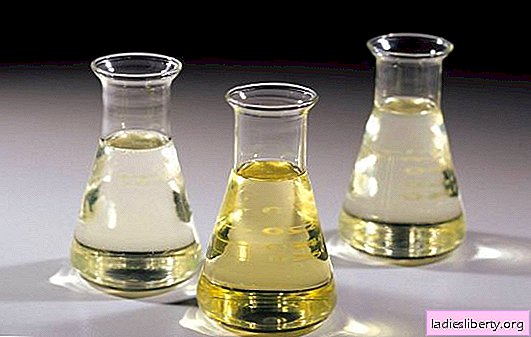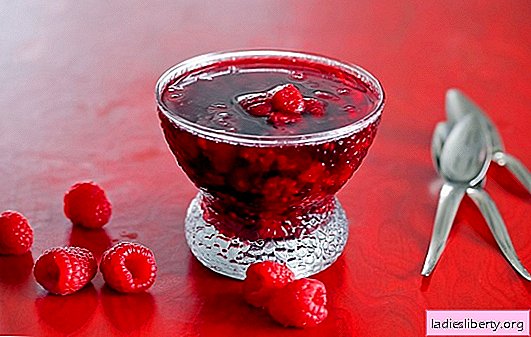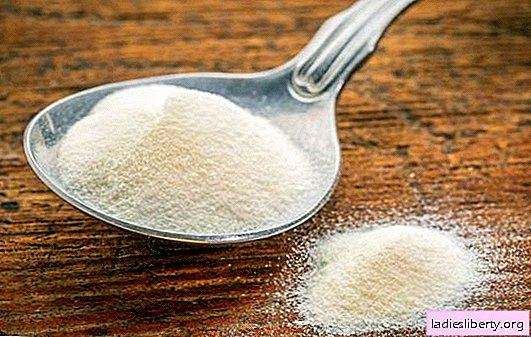
How often does the average buyer glance at the label and composition when choosing a product in a supermarket? And if he glances, then he wonders why so many strange names are listed there?
In any case, usually, he does not know what these dietary supplements or chemical components do with his body. And it should. In this article, we will talk about emulsifiers - substances that are indispensable in the modern food and cosmetic industries.
What is an emulsifier?
This natural or synthetic substance provides the creation of an emulsion of two liquids that are physically unable to mix, stabilizes it and prevents coalescence. An emulsion is a liquid dispersion system, presented in the form of a volume of liquid (often water) and evenly distributed, microscopic drops of another liquid (usually a liquid hydrocarbon or oil).
There are also inverse emulsions - "water in oil". Emulsifiers are composed of elongated molecules, each has two ends: "water-loving" and "oil-loving." During physical action, for example, shaking, the emulsifier molecule “sticks” at one end to the molecule of one substance, and the other to the molecule of the other, and thereby binds them.
Emulsifiers of natural origin, as a rule, are extracted from sugars, glycerin, lecithin and lanolin.
Synthetic are made from selected chemicals. Among them there are hazardous to human health, many are prohibited for use in food.
Use in food and cosmetics
Emulsifiers are one of the most commonly used types of food additives and cosmetic components.
They can help make the product more attractive and useful.
An example of an emulsifier-free mayonnaise shows how unattractive the sauce would be if the oil and lemon juice were separated before they were consumed.
Emulsifiers have a great influence on the structure and texture of many products. They are used to process food, as well as to maintain quality, structure, usefulness and freshness.
Emulsifiers and their action
Of course, to consider each emulsifier does not make sense. Below, for example, the most popular emulsifiers are presented, as well as their potential effects.
E322 - lecithin is extracted from vegetable oils such as soybean and sunflower. It has been used in a wide range of food products since the beginning of the 20th century, namely: margarine, chocolate, bread, cakes, sauces, etc. The harm is possible from the use of lecithin made from genetically modified soy.
E471 - an additive of natural origin, denotes a number of diglycerides and monoglycerides of fatty acids. Accordingly, the human body processes this emulsifier along with other fats. This is the oldest and most common food emulsifier. It is obtained by mixing edible oils with glycerin, and it is widely used in bakery and dairy products, as well as in the production of margarine. Harm is possible only with regular and immoderate use.
The combination of monoglycerides with other substances creates emulsifiers with a special function called monoglyceride derivatives. For example, ethoxylated monoglycerides are the result of the interaction of a monoglyceride and ethylene oxide. Other monoglyceride derivatives include acetoglycerides and diacetylvinic monoglyceride esters. They are common emulsifiers for cakes because they increase the loosening of the dough.
E407 - carrageenan, a polysaccharide that is obtained from red algae. It has antiviral and anticoagulant abilities. It is added to sausages to increase the volume of the product, as well as to dairy products, ice cream and confectionery. Due to its properties, it is allowed in baby and diet foods.
E415 - xanthan gum (xanthan gum). A compound of natural origin, produced by fermentation using bacteria. It well forms the structure of the product, stabilizes and increases the duration of storage. It is widely used for the manufacture of sauces, dairy products, drinks, confectionery and bakery products. And also in cosmetics moisturizing the skin.
E433 - Polysorbate-80, a surfactant (surfactant), contains fatty acids derived from olive oil. It is used in the manufacture of many cosmetics, as it has a moisturizing and softening effect on human skin. Often found as a component of hair care products. When applied externally, it has only a positive effect.
E466 - Carbiomethyl cellulose (CMC), a substance no less complex than its name. It is used as a stabilizer in the manufacture of cosmetics, shampoos, etc. Non-compliance with the manufacturing technology of products and an increase in dosage leads to disorders of the gastrointestinal tract, for this reason CMC can be used as a laxative.
Harm from emulsifiers
According to research, emulsifiers can increase the incidence of obesity, metabolic syndrome and inflammatory bowel disease, and can also increase the risk of type 2 diabetes and diseases of the cardiovascular system.
This is explained by the fact that emulsifiers begin to interfere with the vital activity of bacteria that are in the human intestine, and also violate the intestinal mucosa. They change the microflora and the interaction of bacteria with the organ itself. Under normal conditions, bacteria cannot grow on the mucosa. However, if it is damaged or colonized by bacteria that feed on mucus, then some harmful species will be able to move from the intestines to the blood.
Then, immune cells in the blood recognize and attack foreign bodies, starting the inflammatory process. Over time, this can lead to chronic inflammation in the intestines and throughout the body. What does self-replicating inflammation or an inflammation response to pre-existing inflammation mean. It can be harmful and lead to tissue damage, which is felt as fatigue, pain, and in some cases is expressed by organ failure.
However, the intestinal microflora is sensitive to other factors that provoke and trigger inflammatory processes, for example, an environmental factor or a genetic one. Therefore, if there is a predisposition to inflammation, as well as gastrointestinal diseases, then a person needs to exclude the use of products that include emulsifiers.
It should be understood that the experiments were carried out on mice and, in general, the harm from emulsifiers, when eaten or applying cosmetic products, is not direct, but indirect. And it is also determined not by the qualities of the substance itself, but by its quantity. Nevertheless, it is recommended to avoid these additives, monitor the composition and ingredients on the product packaging, and cook their own meals using only healthy and fresh products, without resorting to the periodic table.











